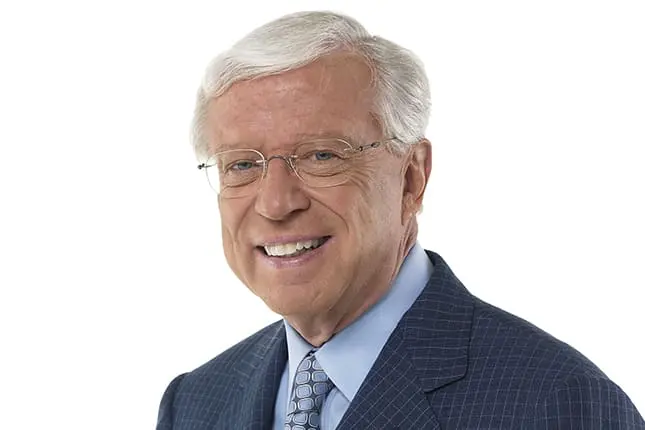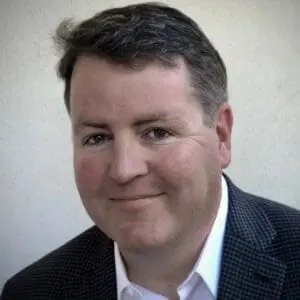What’s a “good match”? Millions of singles are dying to know, while millions of couples wish for a do-over. With all we’ve learned about the brain and human nature, why can’t we figure this out? Or have we?
Psychologist and marriage counselor Neil Clark Warren wrestled with this question for 40 years, and turned to scientific research to find the answer. His 29 Dimensions of Compatibility were found to be highly predictive of relationship success, so he began using them to match singles in 2000. One decade and nearly 30 million memberships later, Warren’s eHarmony matchmaking site claims to be responsible for five percent of all U.S. marriages, with 542 members marrying every day, and a divorce rate that’s significantly lower than the national average.
Warren studied at Pepperdine University, Princeton Seminary, and the University of Chicago, where he was drawn to the work of Carl Rogers. He’s the author of eight bestselling books, including Finding the Love of Your Life, which sold more than a million copies. Going strong at 74, he took a moment to discuss the past, present, and future of Internet matchmaking.
———-
RH: You’ve spent years battling the divorce rate. How did this become your passion?
WARREN: Well, when you’re an old, veteran clinician like me, you’ve seen about all the pain you want to see from broken marriages. I saw married couples who were poorly matched from the very beginning. I saw people in premarital counseling who obviously didn’t belong together, but rarely broke up, however negative the results of their premarital testing. It seemed that about 75 percent of the reason that most people get a divorce is because of matching problems, which they had before they got married. It hit me so hard that very few people properly respect the tremendous challenge of matching yourself up with somebody you want to be with for a lifetime. I think more pain comes from broken relationships than any other part of life. We’ve got to get better at all this.
RH: You saw poor matching as the major cause of failed relationships?
WARREN: Yes, and this happened to perfectly good people. I thought my clients were well intended. Many of them were hard working and insightful. You know, there were a lot of people in the church when I grew up who thought you could make almost any relationship work, if you just had enough willpower, and if you worked hard enough at it. I came to believe that was foolish. There are mismatches in marriage that don’t give themselves up to hard work.
RH: So you changed your focus from rescue to prevention.
WARREN: I thought that was the only way we could do it. I don’t want to be rude in relation to marriage counselors who believe you can work so much out, but for myself, I came to the conclusion that people didn’t bend as far as a lot of marriage counselors thought they could. In my heart, I felt uncomfortable asking couples to spend the rest of their lives together on the basis of having made one faulty choice at the beginning. I knew I had to do something about that, and the only thing I could do was to help people get married to the right people.
RH: Neil, you’re putting marriage counselors out of work!
WARREN: We won’t do that—there’s plenty of work for them. But, sometimes, we ask marriage counselors to do something that’s too hard to do: save a poorly matched marriage. This culture has done almost nothing to help people make the right choice about marriage compatibility. So we get this monumental divorce rate that triples between 1945 and 1985. We have to try to do a better job on the front end. eHarmony is in the process of doing that, but I don’t think we’ve done it yet.
RH: You don’t think so?
WARREN: Well, I think eHarmony’s divorce rate is wonderful. It’s about 33 to 50 percent less than the national divorce rate. But if you think about the people who take this big, long questionnaire we have, they may just be better-intended people; they may be harder workers.
RH: Just to clarify, compatibility isn’t always about being the same, right?
WARREN: Yeah, that’s exactly right. It’s complex how those fit together. But generally speaking, you want to find somebody who’s a lot like you. You just want to have a lot more things to agree on than things you disagree on, otherwise, you spend all your time negotiating. I like to say “Opposites attract—then they attack.”
I went with a girl when I was in college and we never went to a single movie we didn’t fight over. I mean, before we even went! I’ve got to tell you, there was a lot of sexual energy in that relationship, but we didn’t agree about much. Over time, I began to realize that you can’t afford that kind of sexual energy. It’s just going to be too chaotic in your life if you fight about everything.
RH: What are the basic theoretical underpinnings to what you’ve developed with eHarmony? Is there a nod to Carl Rogers or is it strictly empirical?
WARREN: Well, I think it’s more empirical than most people credit us. When I started looking at all this in the beginning, I was just doing it case by case, looking at all the people who came in to see me—and over 40 years you see an awful lot of people. I took those insights and put them in Finding the Love of Your Life in 1993. Then I decided we needed to run some kind of real analysis of married people. We needed to look at the differences between the great and the horrible marriages.
We gave 800 couples the Dyadic Adjustment Scale and then divided them into four groups of 200: the exceedingly happy couples, the moderately happy couples, the moderately unhappy, and those who were miserable. We compared the happiest and unhappiest groups using factor analysis and determined that there were 29 variables that were significantly different for the two groups—like intelligence and ambition. The people in the very happy group were much more alike in these areas than those in the very unhappy group. We then developed our online matching protocol based on this data.
The happiest time of my entire career was when our research findings started coming in, and not a single one of them went against my clinical understanding. It was a consensual validation. And when that started happening, I became more and more confident that we had a model that worked. I’d say we have a strong Rogerian base and a lot of general pragmatism in our conclusions about what works in a relationship.
RH: Rogers’s therapeutic triad could come in handy in most marriages!
WARREN: You know, one of the most important factors in compatibility is just a need for kindness. If you feel genuinely good about yourself when you’re in the presence of the other person, you’ll want to be in that other person’s presence a lot.
RH: Do you ever miss doing clinical work?
WARREN: Ryan, this has been far and away the most satisfying job of my life. But part of the reason is because I went through the rigors of doing what I did in order to understand this eventual business. I founded eHarmony when I was 65 years old. If I hadn’t understood psychology and how people need to get matched up and so forth, I don’t think I’d be any good at coming up with these ideas. Maybe I needed to be a psychologist, but I didn’t enjoy it nearly as much; it’s hard work. Anybody who’s a psychotherapist today, I’ll say to them straight on: “I’ll bet you a dollar that you’re working too hard.”
RH: We’re working too hard?
WARREN: You’re giving every last ounce of energy trying to help people. It’s a seductive task. The people who figure out that the amount of their hard work doesn’t correlate with the amount of change that the person makes—those are smart people.
RH: What’s the future of Internet dating, matching, and marriage?
WARREN: Somebody’s got to figure out attraction—chemical attraction. I’m pretty sure that it’s possible. We’ve been thinking about how to do it.
RH: We’re still not sure what causes the fireworks?
WARREN: No. I think that, as a society, we’ve always believed that you ought to marry the person you have this strong romantic attraction to from across the room. We’ve always believed there was something more special about that. We don’t want to think about it too much; we just want to feel it.
You see, most people sell their souls for a turn-on. If they can find someone who really turns them on, they’ll overlook a number of important matching variables, which can be a problem. We’ve got to teach people how to get both. We’ve got to teach them how to get the chemical attraction, but not to sell their souls to get it. The second thing I think we’ve got to do is understand this whole matching thing much better. We’ve got to get it down to the place where, ultimately, we put two people together and have a high degree of conviction that they’ll be able to sustain that relationship over a long period of time. We’re pretty good now, but we’ve got a long way to go.
If you have those two things, in my opinion, you have every right to think of your relationship as enduring and able to last over time. It can make it through some difficult, high-stress times. And that’s why, even in this culture in which there’s so much fear of marriage, I say there’s no reason to be afraid—if you have basic physical chemistry and broad-based compatibility.
Ryan Howes
Ryan Howes, Ph.D., ABPP is a Pasadena, California-based psychologist, musician, and author of the “Mental Health Journal for Men.” Learn more at ryanhowes.net.












